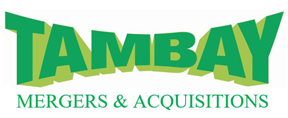Advanced Negotiation Techniques in High-Stake Business Sales

In the world of high-stakes business sales, negotiation is an art form. It’s a delicate dance where fortunes are made or lost, and the difference between success and failure can often hinge on the negotiator’s skills. While basic negotiation tactics are essential, advanced techniques can elevate your game to new heights, helping you navigate complex deals with confidence and finesse. This article discusses advanced negotiation strategies tailored specifically for high-stake business sales, offering insights and tips to help you close deals effectively and maximize value.
Building Rapport and Establishing Trust
Trust is the most important factor in high-stakes negotiations. Without it, even the most advantageous deal can fall apart. Building rapport with your counterpart from the outset sets the stage for a productive negotiation process. Take the time to understand their needs, motivations, and concerns. Listen actively and empathize with their perspective. You can foster trust and goodwill by demonstrating genuine interest and understanding, laying a solid foundation for fruitful negotiations. Remember, people are likelier to make concessions and compromises when they feel respected and valued.

Building rapport with your counterpart from the outset sets the stage for a productive negotiation process.
Understanding Power Dynamics
Before diving into negotiation tactics, it’s crucial to grasp the power dynamics in high-stake business sales. Typically, both parties come to the table with specific goals and leverage points. However, understanding who holds the upper hand can be nuanced. It’s not always the party with the most resources or leverage who emerges victorious, but rather the one who can leverage their strengths strategically. Identifying your strengths and weaknesses and those of your counterpart is the first step in crafting a winning negotiation strategy.
Business Dynamics: Contrasting Tampa Bay and Miami Markets
The business landscapes of Tampa Bay and Miami present intriguing distinctions, each offering its unique advantages and opportunities. Miami, often called the “Gateway to the Americas,” thrives on its international connections, making it a hotspot for finance, trade, and tourism industries. Its vibrant cultural scene and diverse population create a dynamic business environment where innovation flourishes.
On the other hand, Tampa Bay, known for its robust technology sector and strong healthcare presence, boasts a more diversified economy. With lower operating costs and a business-friendly climate, Tampa Bay attracts entrepreneurs seeking a supportive ecosystem for startups and small businesses. Understanding these differences is crucial for businesses considering a relocation or expansion, as each market offers distinct advantages tailored to specific industries and growth strategies.
For a smooth commercial moving experience, look no further than Miami Movers for Less. They are a professional moving service specializing in catering to the needs of businesses relocating or expanding. They understand the unique demands of commercial moves and offer customized solutions to ensure a smooth, stress-free transition. With expertise in handling various business relocations, their services are particularly beneficial for companies looking to navigate the diverse economic landscapes of areas like Tampa Bay. Whether for a startup or a well-established business, they provide efficient and tailored moving support, reducing downtime and aiding businesses in swiftly adapting to their new environment.
Whether it’s Miami’s global connectivity or Tampa Bay’s innovation-driven environment, entrepreneurs can find ample opportunities to thrive in both dynamic Florida markets.
Focus on Value Creation, Not Just Price
While price is undoubtedly a critical factor in any business sale, focusing solely on price can limit the potential for value creation. Instead, shift the focus of the negotiation towards uncovering and maximizing value for both parties. That might involve identifying areas of mutual benefit, such as cost savings, revenue growth opportunities, or strategic partnerships. By framing the negotiation in terms of value creation rather than price reduction, you can expand the pie and create win-win outcomes that satisfy both parties’ interests.
High-Stake Business Sales: Mastering the Art of Silence
Silence can be a potent tool in negotiation, yet it’s often underutilized. In high-stake sales, silence can create tension and compel the other party to fill the void with concessions or additional information. Resist the urge to fill the silence with chatter after presenting an offer or making a significant point. Instead, maintain eye contact and wait for your counterpart to respond. This subtle yet powerful technique can give you the upper hand in negotiations, allowing you to extract valuable concessions or information without saying a word.

In high-stake business sales, silence can create tension and compel the other party to fill the void with concessions or additional information
Utilizing BATNA and ZOPA
BATNA (Best Alternative to a Negotiated Agreement) and ZOPA (Zone of Possible Agreement) are invaluable concepts in negotiation theory, particularly in high-stake sales. Your BATNA represents the alternative course of action you’ll take if a negotiated agreement cannot be reached, providing you with leverage and a fallback position. On the other hand, ZOPA refers to the range of possible agreements that would be acceptable to both parties. By understanding your BATNA and ZOPA, you can effectively gauge your negotiating position and make informed decisions that maximize value while minimizing risk.
Negotiating Terms and Conditions
In high-stake business sales, the devil is often in the details of the terms and conditions. While price is crucial, other factors, such as payment terms, warranties, delivery schedules, and intellectual property rights, can significantly impact the deal’s overall value. Take the time to scrutinize and negotiate these terms carefully, ensuring they align with your interests and mitigate potential risks. Be prepared to trade concessions strategically, prioritizing the terms that matter most to you while remaining flexible on less critical issues.

Take the time to scrutinize and negotiate these terms carefully, ensuring they align with your interests and mitigate potential risks
Managing Deadlocks and Impasses
Despite your best efforts, negotiations may sometimes reach an impasse or deadlock. Rather than viewing these situations as failures, see them as opportunities to exercise creativity and problem-solving skills. Brainstorm alternative solutions, explore new options, or consider bringing in a neutral third party to mediate. By remaining flexible, patient, and focused on finding common ground, you can often overcome even the most challenging impasses and salvage the negotiation process.
Closing the Deal with Confidence
Closing a high-stake business sale requires confidence, finesse, and timing. Once you’ve reached an agreement that satisfies both parties’ interests, it’s essential to seal the deal promptly and decisively. Clearly outline the terms of the agreement, address any remaining concerns or objections, and obtain buy-in from all stakeholders. Consider drafting a formal contract outlining the agreed-upon terms and conditions to clarify and avoid misunderstandings. By closing the deal confidently and professionally, you can solidify the agreement, maintain a good business reputation, and set the stage for a successful business relationship.
Conclusion
Mastering advanced negotiation techniques is essential for success in high-stake business sales. You can navigate complex deals with confidence and finesse by understanding power dynamics, building rapport, focusing on value creation, and utilizing tactics such as silence, BATNA, and ZOPA. Remember to negotiate terms and conditions carefully, manage deadlocks effectively, and close the deal confidently to maximize value and secure mutually beneficial outcomes. With practice and perseverance, you can become a master negotiator capable of easily closing even the most challenging deals.
https://www.pexels.com/photo/close-up-of-human-hand-327540/
www.pexels.com/photo/monochrome-photography-of-people-shaking-hands-814544/
https://www.pexels.com/photo/photo-of-woman-wearing-yellow-shirt-3760945/

